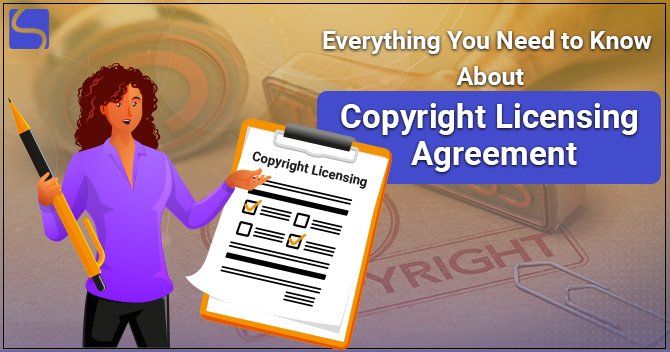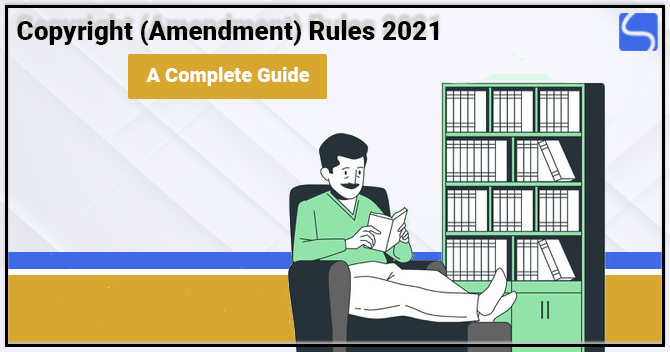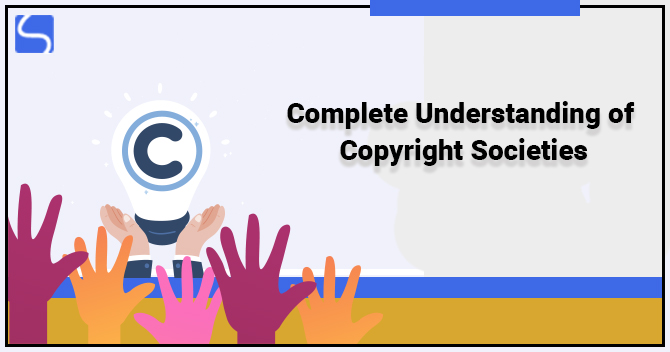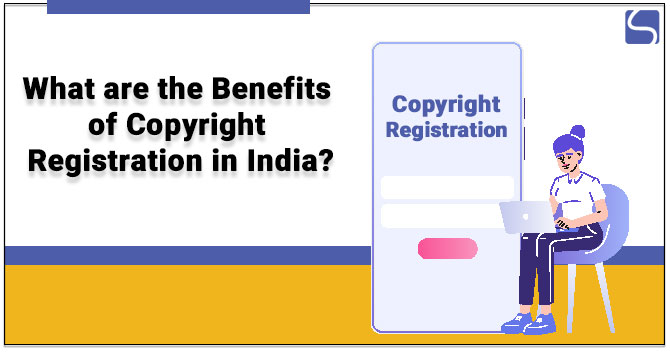Everything You Need to Know About Copyright Licensing Agreement

Karan Singh | Updated: Jan 13, 2022 | Category: Copyright
Copyright is a legal or official term used to describe the rights that creators have over their artistic works & literary works. Works covered by Copyright range from music, paintings, films, computer programs, maps, databases, technical drawings, and advertisements. The Copyright Law not only safeguards but also gives the exclusive rights covered in the creator of a copyrighted work by virtue of their labour & investment. Hence, the content creator can reap the benefits from their work by generating wealth through the mode of licenses and assignments to maximise incentivisation. In this write-up, we will discuss Copyright Licensing Agreement and its clauses.
Table of Contents
What is Copyright Licensing?
Copyright Licensing is a mode of transferring rights for the utilisation of the copyrighted work, without which any act done would be equivalent to violation or infringement. The transfer of rights could relate to the right of publishing, making translations, broadcasting, etc., or a combination thereof. The right may be created in a pre-existing work or in a work that is yet to come into existence on a prescribed date. Hence, it’s a transfer of precise interest for a predetermined duration in turn of compensation for the mutual benefit of the Copyright owner, known as the Licensee and the party to whom the right is transferred, known as the Licensor.
Hence, Copyright Licenses can either be exclusive or non-exclusive, and the exclusive license gives only the Licensee the right or authority to use the copyrighted work for the length of the agreement while restraining other companies from exercising such rights. Equally, where a non-exclusive license is provided, the same right transferred to the Licensee can be exercised by other legal parties simultaneously.
Why is the Copyright Licensing agreement Necessary?
Drafting or preparing a Copyright Licensing Agreement is vital since any mode of transfer or assignment is considered valid in the law’s eyes only if it is lessened in writing and is signed by the parties/their duly authorised agent as also laid under Section 19 of the Indian Copyright Act, 1957[1]. The assignment clearly set the parameters of the permissible and impermissible acts describing the scope of its operation. Drafting of the Copyright Licensing Agreement requires a lot of care & Due Diligence, ensuring all the clauses captures the correct essence of the agreement to avoid any severe damage to either party. Therefore, it’s also vital to negotiate and maintain a balance of interest for both parties to avoid unwanted prejudice, which can later be approved in courts.
Some Vital Clauses in a Copyright Licensing Agreement
Following provisions form an essential part of Copyright Licensing in an agreement:
- Title: The agreement begins with the title, namely “Copyright Licensing Agreement” or “Licensing Agreement”. Thereafter, the parties, contact details m and their registered addresses are laid down.
- Definition: It is also known as Interpretation Clause, which recognises and defines vital terms used in the agreement. This ensures that there is no scope of ambiguity and it also provides cross-referencing when required, avoiding the need to clarify every time the defined terms are used in the primary body of the agreement. This boosts the presentation of the Copyright Licensing Agreement alongside keeping it accurate and to the point. Terms like permitted use, royalty, 3rd party, etc., are generally defined here.
- Consideration: This is a vital part of any licensing contract or agreement. The clause lays down the amount of consideration which the Licensee shall pay to the Licensor in lieu of using the copyrighted work in the form of royalties. The payment of deliberation may depend on the sales made or profits accrued, or a combination of both the prior stated factors. Hence, the mode of estimating the consideration is recognised clearly. It also creates a compulsion on the Licensee to maintain a record of all such profits or sales made by them for the purpose of auditing.
- Grant of Rights and License: This is the most vital clause in this agreement as it lays down the scope of use of such a license, exceeding which any act of the Licensee would comprise an act of violation or infringement.
- Indemnification: This clause recognises the course of action in the event of damage or loss caused by a violating act by the other party in contravention of the allowed acts laid in the agreement. It lays down in which situations and to what extent shall the parties be covered. The aids to make good of the loss suffered by another party. The clause can state the extent of indemnity as well. It may be a fixed amount/based on fractions of damages, or some parts may be fixed while the others may depend on the ratio of damage caused.
- Parties’ Obligation: Once the rights have been carried out, it is vital to narrate the duties since where there is a right; there is always a corresponding duty. Such obligations are usually concerned with mutual respect for the Copyright works shared by both parties in furtherance of this contract whereby each party agrees to not reveal any information shared with another. It can extend to other types of IPR such as Trademarks, Trade Secrets, Copyrights in manuals of use, instructional texts, and other valuable works shared in confidence.
- Changes and Modifications: This clause is material not only to the Licensee but also to the Licensor since it establishes the right of both the parties in the event of any changes made to the actual work. It recognises the owner of the significant work and the extent of ownership.
- Dispute Resolution: When any dispute arises between the parties in the event of any dispute arising out of this agreement. The choice of dispute resolution can range from arbitration, litigation, conciliation, which shall depend on the parties.
- Governing Law: It determines the law that governs the said Copyright Licensing Agreement. This may be understood when both the parties are mainly operating in the same jurisdiction, but it shall still be incorporated.
- Other clauses: In a clause where there is the revelation of information or details, there shall be a clause on warranties and representation, which shall be an assertion of existing facts. Other than this, clauses like severability, notice and entire agreement shall be added. Any other additions to the agreement which can be projected as an attachment in the form of annexure/schedules shall be utilised as such. The Copyright Licensing Agreement shall be concluded with the signing & signatures of parties stating their assent to all the terms incorporated in the agreement.
Conclusion
A Copyright Licensing Agreement is essential to the author or creator of the copyrighted work, given the effort, time, and capital invested thereof. Hence, it is vital to keep the clauses as mentioned above and in careful consideration before concluding any agreement of the like nature to prevent any damage to either party. Once drafted, repetitive revisions ought to be avoided to make sure that the intent of both parties is shown in their best interests.
Read our Article:How can you Monetise Copyright?- Needs & License














